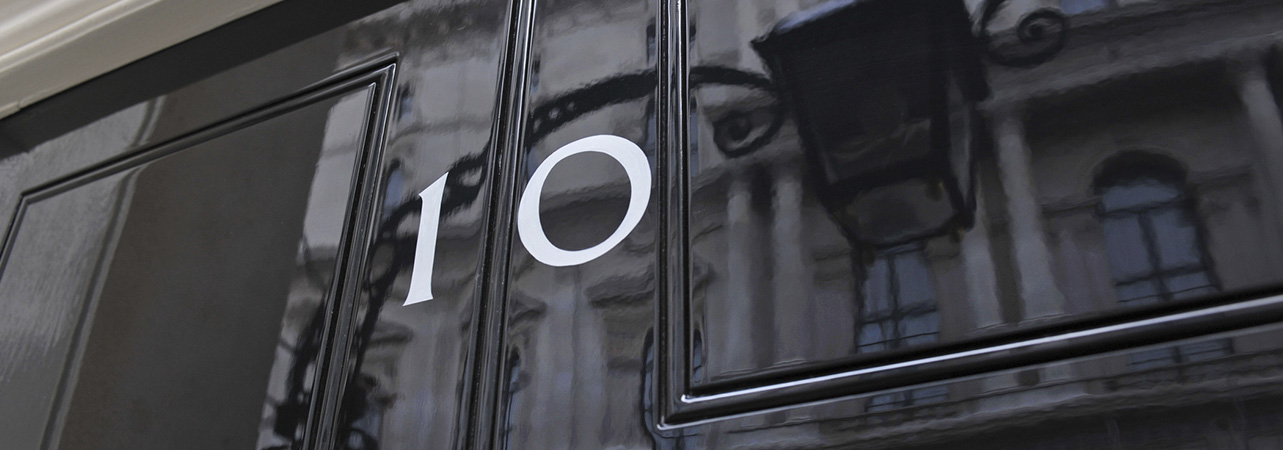As expected, Chancellor of the Exchequer Jeremy Hunt announced a cut in National Insurance in a Spring Budget intended to boost long-term growth. His statement included upgrades to economic growth forecasts, the abolition of tax breaks for non-domiciled citizens, and the introduction of a “British ISA”.
- The main rate of NICs was cut from 10% to 8%
- Inflation is set to fall below its 2% target soon
- A new “British ISA” and a “British Savings Bond” were announced
“Savers will be able to save up to £5,000 in a ‘British ISA’”
Growth forecasts upgraded: the Office for Budget Responsibility (OBR) upgraded its forecasts for UK economic growth. The economy is now forecast to expand by 0.8% this year, 1.9% in 2025, 2% in 2026, 1.8% in 2027, and 1.7% in 2028. The annualised rate of consumer price inflation – which peaked at 11% and currently stands at 4% – is expected to drop below the 2% target “in just a few months’ time”.
Underlying debt, excluding Bank of England debt, was forecast to be 91.7% of GDP in 2024-25, rising to 93.2% in 2026-27, and subsiding to 92.9% in 2028-29. Public sector borrowing is predicted to fall from 4.2% of GDP in 2023-24 to 3.1% in 2024-25, and to continue falling to 1.2% in 2028-29. By the end of the forecast period, the OBR expects borrowing to reach its lowest level of GDP since 2001. Day-to-day government spending is set to increase by 1% in real terms over the next five years.
National Insurance cut: National Insurance contributions were cut from 10% to 8% for employees and from 8% to 6% for self-employed workers, effective from 6 April. Non-domiciled UK residents – who live in the UK but who are not domiciled in the UK for tax purposes – will lose tax breaks on their foreign income from April 2025.
The Chancellor raised duty on tobacco and announced the introduction of a tax on vaping products from October 2026. Duty on alcohol remained frozen until February 2025. Fuel duty was frozen for another year, while air passenger duty on non-economy-class tickets was increased, and the Energy Profits Levy – a windfall tax on profits generated by energy companies – was extended to 2029.
The “British ISA”: in addition to the annual £20,000 ISA allowance, savers will be able to save up to £5,000 in a “British ISA” to be invested in “UK-focused assets”. The Chancellor also announced a new “British Savings Bond”, offering a guaranteed interest rate, fixed for three years and available through National Savings & Investments (NS&I). The Government wants to provide opportunities for “a new generation” of retail investors and intends to proceed with the sale of its remaining shares in NatWest this summer.
Child benefit threshold extended: the salary limit for the highest-earning parent in a household to qualify for the full rate of child benefit was raised from £50,000 to £60,000. Households in which the highest-earning parent earns up to £80,000 will be eligible for a tapering level of child benefit. The Household Support Fund – a temporary Government fund intended to help vulnerable households cope with the cost of living – was extended for a further six months.
Some support for small businesses: the VAT threshold for small businesses was raised from £85,000 to £90,000 from 1 April, removing 28,000 small businesses from paying VAT. The Recovery Loan Scheme – a loan scheme designed to help UK business to access finance – will be extended by £200 million and rebranded as the “Growth Guarantee Fund”.
A move to boost housing supply? The higher rate of capital gains tax paid on profits from the sale of property was reduced from 28% to 24% in a move aimed at increasing transactions. Tax breaks for owners of properties used as holiday lets were abolished, and stamp duty relief for people who purchase more than one property in a single transaction is to be scrapped.
“Smoke and mirrors”: the Institute for Fiscal Studies (IFS) described the Budget as “smoke and mirrors”, citing “bright spots” such as the reduction in NICs and the change to “non-dom” taxation, but also highlighting record tax rises over this parliament and a “dismal” picture on living standards. In particular, the IFS warned that, on average, UK households will be worse off at the time of the next General Election than they were at the last election in 2019. Meanwhile, the British Chambers of Commerce acknowledged that the changes to National Insurance would “provide some momentum”, but did not see any other announcements that would “help shift the dial on conditions for business”. Elsewhere, the Confederation of British Industry responded positively to the Budget, describing the Chancellor’s “tricky high-wire balancing act”, although it criticised the extension of the windfall tax on energy profits for undermining the sector’s competitiveness.




